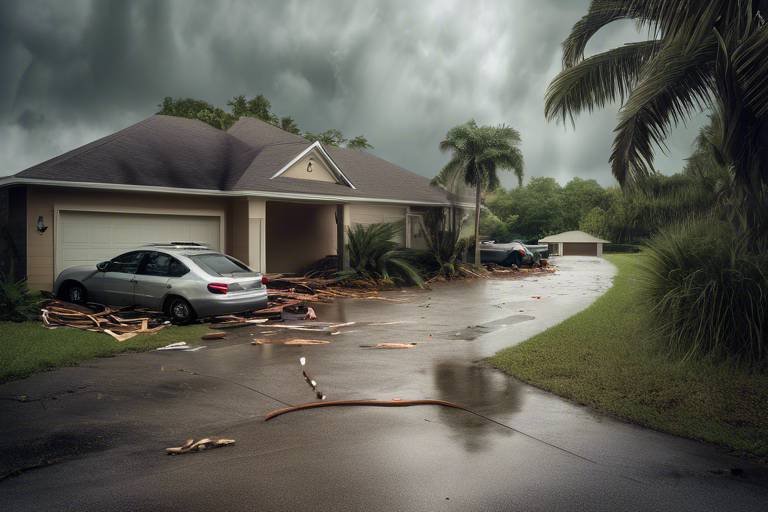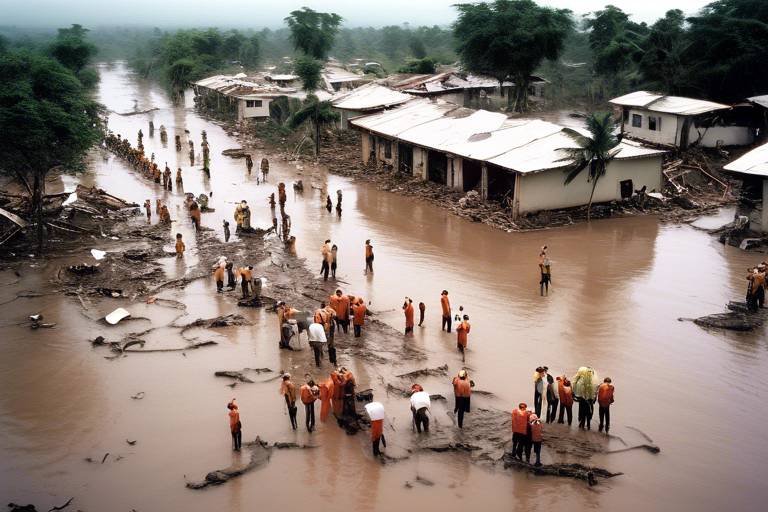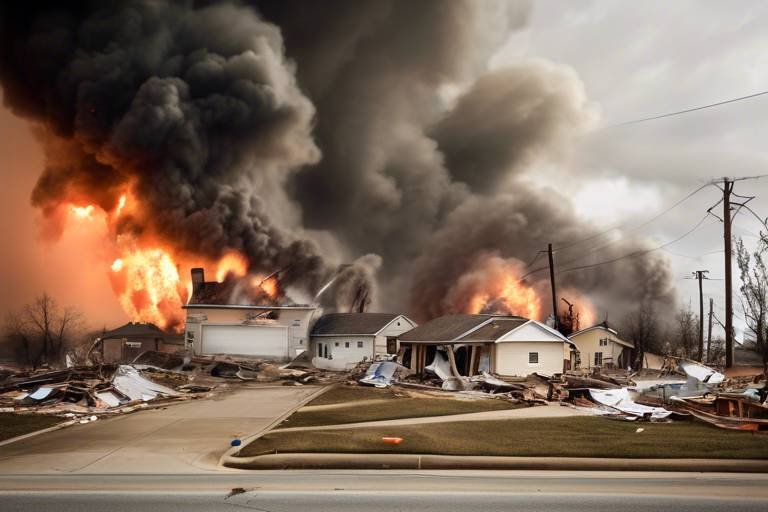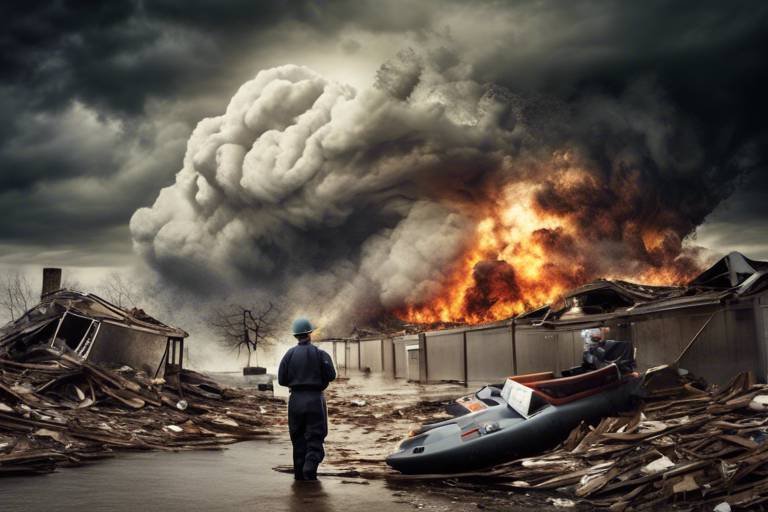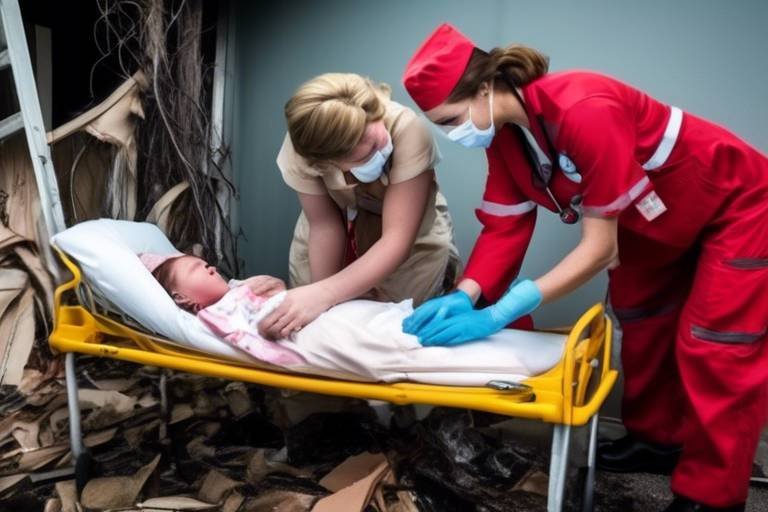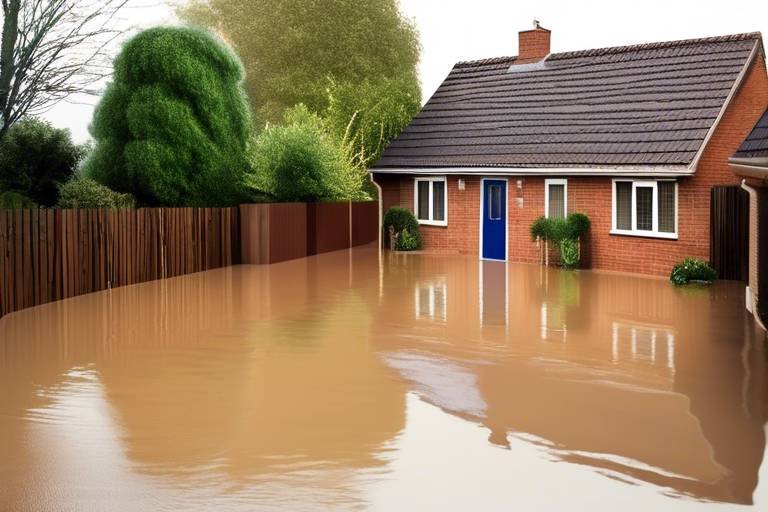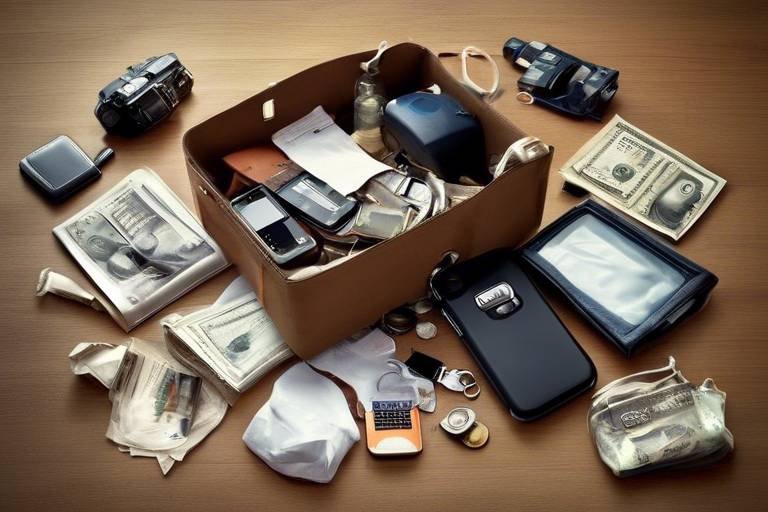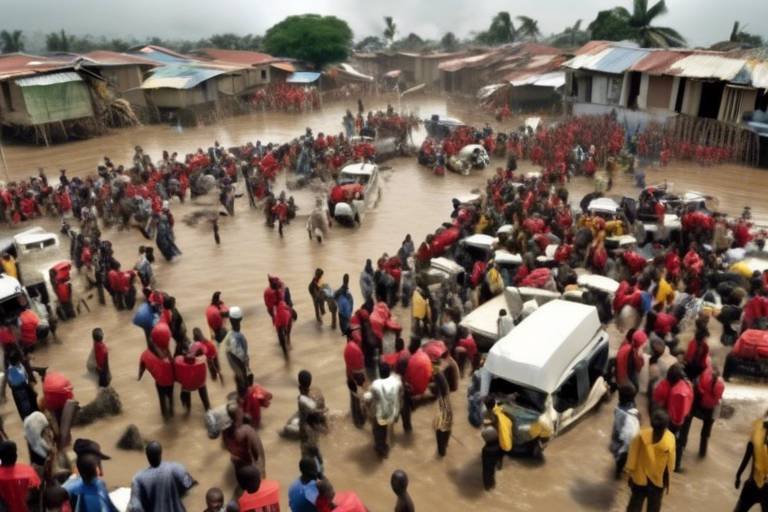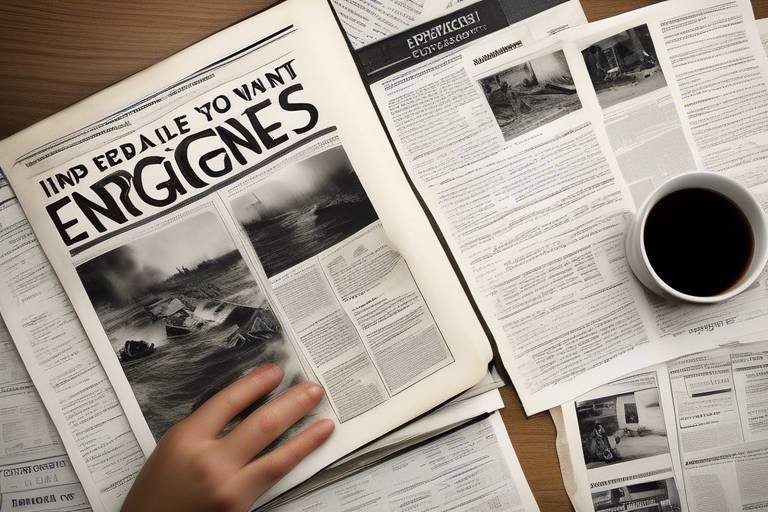Natural Disasters and Mental Health - How to Cope?
Natural disasters are not just physical events; they can leave deep psychological scars that linger long after the debris has settled. Whether it’s a hurricane, earthquake, wildfire, or flood, these catastrophic events can profoundly affect our mental health. Imagine waking up to find your home destroyed, your community in ruins, and your sense of safety shattered. It’s a situation that can invoke feelings of overwhelm, hopelessness, and even fear. The emotional aftermath is often just as devastating as the disaster itself, leading to issues like anxiety, depression, and post-traumatic stress disorder (PTSD).
Understanding how these events impact mental health is crucial. The chaos and uncertainty that follow a disaster can trigger a wide range of psychological responses. Some people may feel a sense of loss, not just of property but of their sense of normalcy. Others may struggle with survivor's guilt, especially if they witnessed others suffering or losing their lives. Recognizing these feelings is the first step toward healing. It’s okay to feel vulnerable; it’s a natural response to an unnatural event. But the good news is that there are ways to cope and regain control over your life.
So, how do we navigate through these turbulent waters? Coping mechanisms become our lifeboats in the stormy seas of emotional turmoil. From mindfulness practices to seeking professional help, there are numerous strategies that can help individuals manage their mental health effectively. It’s important to remember that everyone copes differently, and what works for one person might not work for another. However, having a toolbox of strategies can empower you to find what feels right for you.
As we delve deeper into this topic, we will explore various coping mechanisms, the importance of support systems, and how community resources can play a pivotal role in recovery. By understanding the psychological impact of natural disasters and equipping ourselves with effective coping strategies, we can find a path toward healing and resilience. In the face of adversity, it's essential to remember: you are not alone, and help is available.
- What are the common psychological effects of natural disasters?
Common effects include anxiety, depression, PTSD, and feelings of helplessness.
- How can I help someone who has experienced a natural disaster?
Offer emotional support, listen without judgment, and encourage them to seek professional help if needed.
- Are there community resources available for mental health support?
Yes, many communities offer counseling services, support groups, and hotlines specifically for disaster recovery.
- What should I do if I feel overwhelmed by my emotions?
Consider practicing mindfulness, journaling, or speaking with a mental health professional to help process your feelings.
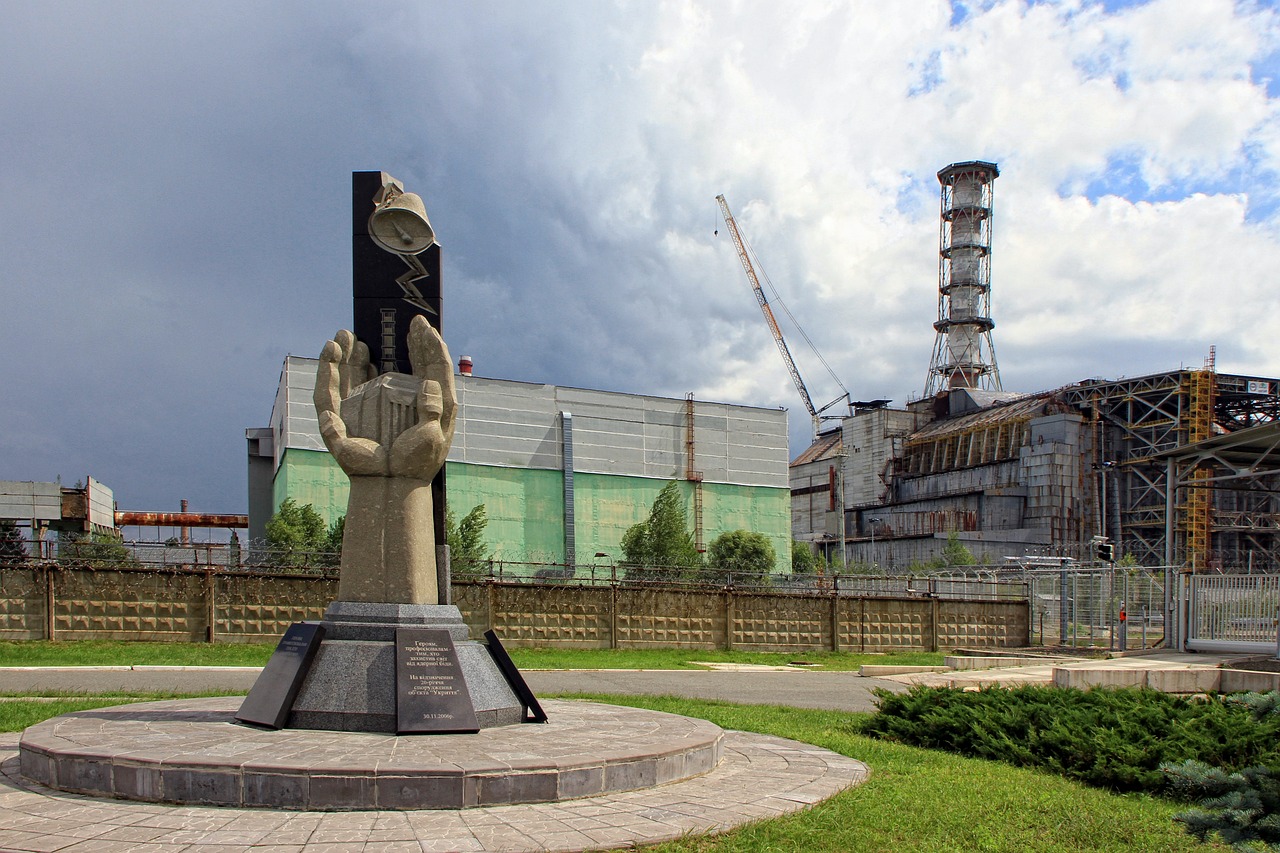
Understanding the Psychological Impact
This article explores the impact of natural disasters on mental health and offers strategies for coping with the emotional aftermath. Learn how to navigate these difficult experiences effectively.
Natural disasters can be devastating, not only in terms of physical destruction but also concerning the emotional and psychological toll they take on individuals and communities. When the ground shakes, the winds howl, or floods sweep through towns, the immediate chaos can lead to a whirlwind of feelings. It's essential to recognize that the aftermath of such calamities often includes a range of psychological effects that can linger long after the physical damage has been repaired. This includes anxiety, depression, and even post-traumatic stress disorder (PTSD).
Understanding these impacts is crucial. For instance, many people may experience heightened levels of stress and anxiety as they grapple with the uncertainty of their future. Imagine waking up each day, not knowing if your home is intact or if your loved ones are safe. This constant state of worry can lead to chronic anxiety, making it challenging to focus on daily tasks or even to find joy in life. Additionally, feelings of helplessness can arise when individuals feel they have little control over their circumstances.
Moreover, the emotional aftermath can manifest in various ways. Some common psychological effects include:
- Intrusive thoughts: These can include flashbacks to the disaster or persistent worries about future events.
- Emotional numbness: Some individuals may feel detached from their feelings or struggle to connect with others.
- Sleep disturbances: Insomnia or nightmares can become prevalent as the mind processes trauma.
- Social withdrawal: Many may isolate themselves due to feelings of shame or a lack of understanding from others.
Recognizing these symptoms is the first step toward healing. It's like shining a light in a dark room; once you see the obstacles, you can navigate around them. Additionally, understanding the psychological impact can help individuals realize they're not alone in their struggles. Many people experience similar feelings, and acknowledging this shared experience can be a source of comfort and connection.
Furthermore, it's essential to note that the psychological impact of natural disasters can vary significantly from person to person. Factors such as previous trauma, personal resilience, and available support systems can all influence how an individual copes. For example, someone who has experienced a disaster before may have developed coping mechanisms that help them manage their emotions better than someone facing such a situation for the first time.
In summary, the psychological impact of natural disasters is profound and multifaceted. By understanding these effects, we can better support ourselves and others during recovery. Just as communities come together to rebuild physically, we must also prioritize emotional healing. Remember, it's okay to seek help, to talk about your feelings, and to lean on others during these challenging times.
Developing personal coping strategies is vital for managing stress and emotional turmoil. This section discusses various techniques individuals can use to cope effectively during and after a disaster.
Practicing mindfulness and meditation can help individuals center themselves and reduce anxiety. These techniques encourage a focus on the present, promoting emotional resilience in the face of trauma.
Simple breathing exercises can significantly alleviate stress and anxiety. This subsection provides practical steps for incorporating these techniques into daily routines for better mental health.
Journaling can serve as a powerful outlet for emotions during challenging times. This section explores how writing can help individuals process their feelings and experiences after a disaster.
Sometimes, coping alone is not enough, and seeking professional help becomes necessary. This section emphasizes the importance of therapy and counseling in recovering from the psychological effects of disasters.
Connecting with support systems and community resources can provide essential assistance during recovery. This section highlights the importance of social support in overcoming mental health challenges.
Establishing a strong support network can enhance resilience. This subsection discusses how to build connections with friends, family, and local organizations for emotional support.
Community services often offer vital resources for disaster recovery. This section outlines available services, such as counseling and support groups, to aid individuals in their healing journey.
Q: What are common psychological effects after a natural disaster?
A: Common effects include anxiety, depression, PTSD, intrusive thoughts, and emotional numbness.
Q: How can I support someone who has experienced a disaster?
A: Listen to them, offer your presence, and encourage them to seek professional help if needed.
Q: Are there community resources available for mental health support?
A: Yes, many communities offer counseling services, support groups, and crisis hotlines.

Coping Mechanisms for Individuals
When faced with the aftermath of a natural disaster, it’s not uncommon to feel overwhelmed and lost. The emotional turmoil can feel like a storm that just won’t pass. However, developing personal coping strategies is vital for managing the stress and emotional upheaval that often follows such traumatic events. It’s like having a toolkit ready to help you navigate through the chaos. Here are some effective coping mechanisms that individuals can adopt to help them regain a sense of control and stability in their lives.
One of the most powerful tools you can use during tough times is mindfulness and meditation. These practices are not just buzzwords; they’re essential for centering yourself when everything feels out of balance. Think of mindfulness as a mental anchor, keeping you grounded in the present moment rather than letting your thoughts drift into the anxiety-laden waters of what-ifs and worst-case scenarios. By focusing on your breath and your surroundings, you can cultivate a sense of peace amidst the chaos. Meditation, on the other hand, allows you to create a mental space where you can process your emotions without judgment, promoting emotional resilience.
Incorporating simple breathing exercises into your daily routine can significantly alleviate stress and anxiety. Imagine your breath as a soothing wave that washes over you, calming your mind and body. Here’s a quick technique to get you started:
1. Find a comfortable seated position. 2. Close your eyes and take a deep breath in through your nose, counting to four. 3. Hold your breath for a count of four. 4. Exhale slowly through your mouth for a count of six. 5. Repeat this cycle for five minutes.
By practicing these exercises regularly, you can create a calming ritual that helps you manage overwhelming feelings, allowing you to face challenges with a clearer mind.
Another effective coping mechanism is journaling. Writing down your thoughts and feelings can serve as a powerful outlet during challenging times. It’s like having a conversation with yourself, where you can express your fears, hopes, and frustrations without any judgment. Not only does journaling help in processing emotions, but it can also provide clarity and insight into your experiences. Consider setting aside time each day to write about your feelings, even if it’s just a few sentences. Over time, you may find that this practice helps you make sense of the chaos and offers a path toward healing.
Sometimes, coping alone is not enough. Just like you would seek medical attention for a physical injury, it’s essential to recognize when you need professional help for your mental health. Therapy and counseling can provide a safe space to explore your feelings and develop coping strategies tailored to your needs. Mental health professionals are equipped with the tools and knowledge to help you navigate the emotional aftermath of a disaster. Remember, asking for help is a sign of strength, not weakness.
In conclusion, while the emotional aftermath of a natural disaster can feel insurmountable, incorporating these coping mechanisms into your life can help you regain your footing. Each step you take towards healing is a step towards reclaiming your life. Be patient with yourself and remember that it’s okay to seek support from others as you navigate this challenging journey.
- What are the common psychological effects of natural disasters?
Common effects include anxiety, depression, and PTSD. It's essential to recognize these symptoms to seek appropriate help. - How can I support a friend who has experienced a natural disaster?
Listen to them, validate their feelings, and encourage them to seek professional help if needed. - Is it normal to feel overwhelmed after a disaster?
Yes, feeling overwhelmed is a common response. It's important to practice coping strategies and seek support.

Mindfulness and Meditation
In the wake of a natural disaster, the chaos and emotional turmoil can feel overwhelming. One effective way to regain a sense of control and calm is through . These practices are not just trendy buzzwords; they are powerful tools that can help you center your thoughts and emotions. When you embrace mindfulness, you cultivate an awareness of the present moment, allowing you to step back from the flood of anxiety and fear that often accompanies traumatic events.
Imagine standing in the eye of a storm. Everything around you may be swirling with chaos, but in that small space, you find stillness. That's what mindfulness offers—an opportunity to pause and breathe amidst the turmoil. By focusing on your breath or the sensations in your body, you can ground yourself in the here and now. This practice not only reduces stress but also enhances emotional resilience, empowering you to face the aftermath of a disaster with greater strength.
To get started with mindfulness, consider incorporating simple meditation techniques into your daily routine. You don't need to sit cross-legged on a mountaintop; just a few minutes of focused breathing can make a world of difference. Here are some steps to guide you:
- Find a Quiet Space: Choose a comfortable place where you won’t be disturbed.
- Set a Timer: Start with just 5-10 minutes to avoid feeling overwhelmed.
- Focus on Your Breath: Inhale deeply through your nose, hold for a moment, and exhale slowly through your mouth.
- Notice Your Thoughts: If your mind wanders, gently bring your focus back to your breath without judgment.
As you become more comfortable with these techniques, you may explore guided meditations or mindfulness apps that provide structured sessions tailored to your needs. Many of these resources are designed to help individuals cope with anxiety and stress, especially in the aftermath of traumatic events. Regular practice can lead to profound changes in how you respond to stressors, helping you to build a buffer against the emotional impact of disasters.
Ultimately, the journey toward recovery is personal, and what works for one person may not work for another. However, mindfulness and meditation are versatile practices that can be adapted to fit your unique circumstances. Whether you find peace in a quiet moment of reflection or through a more structured meditation practice, the key is to make it a consistent part of your routine. Over time, you may find that these practices not only help you cope with the immediate aftermath of a disaster but also enhance your overall mental well-being.
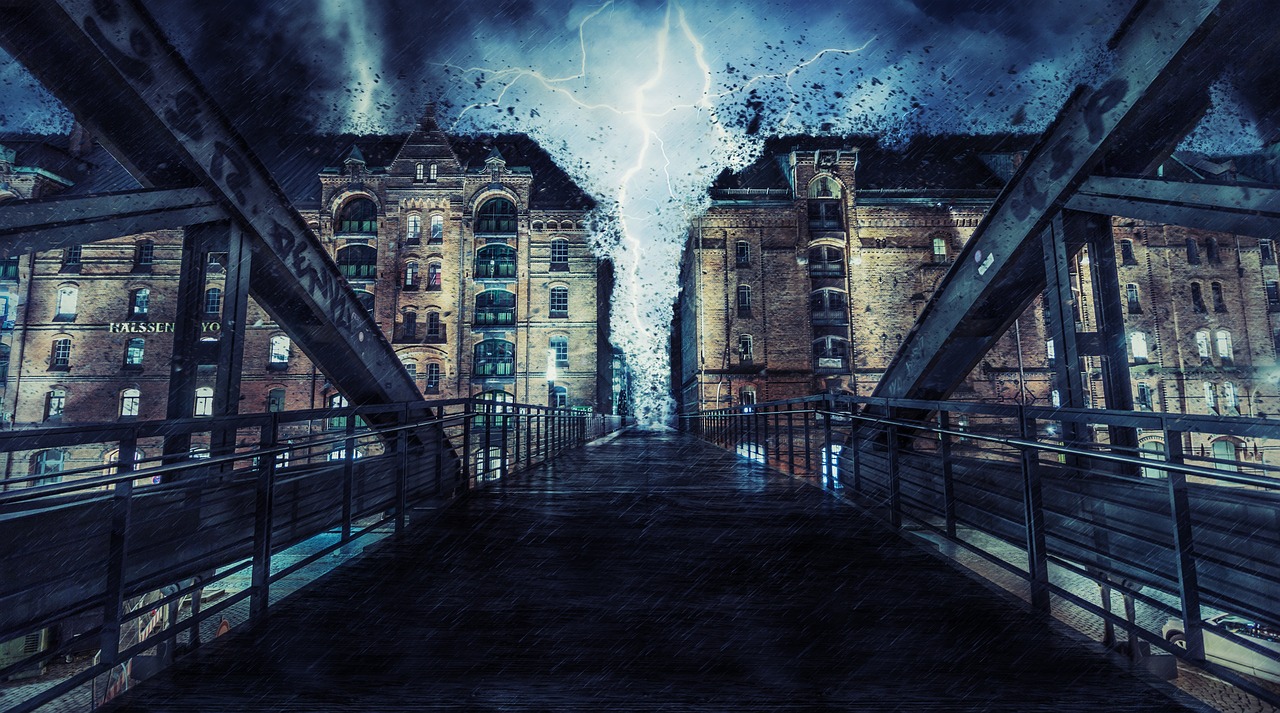
Breathing Exercises
Breathing exercises are like a secret weapon in your mental health toolkit, especially during stressful times such as natural disasters. They’re simple yet incredibly effective ways to combat anxiety and regain control over your emotions. Imagine your breath as a bridge between your mind and body, helping you navigate through turbulent waters. By focusing on your breath, you can create a sense of calm amidst chaos.
One of the most popular techniques is the 4-7-8 breathing method. This technique is straightforward and can be practiced anywhere, making it perfect for those moments when stress hits hard. Here’s how it works:
| Step | Action |
|---|---|
| 1 | Inhale deeply through your nose for a count of 4. |
| 2 | Hold your breath for a count of 7. |
| 3 | Exhale slowly through your mouth for a count of 8. |
Repeat this cycle at least four times. You’ll find that with each cycle, your body begins to relax and your mind clears. It’s like pressing a reset button for your brain. This method is particularly useful when you're feeling overwhelmed or anxious about the aftermath of a disaster.
Another effective exercise is the diaphragmatic breathing, also known as belly breathing. This technique encourages full oxygen exchange, which can help lower your heart rate and stabilize blood pressure. To practice this, follow these steps:
- Find a comfortable position, either sitting or lying down.
- Place one hand on your chest and the other on your belly.
- Inhale deeply through your nose, ensuring that your belly rises while your chest remains still.
- Exhale slowly through your mouth, feeling your belly fall.
By concentrating on your breath and the movement of your body, you can shift your focus away from distressing thoughts and ground yourself in the present moment. This practice not only helps reduce anxiety but also enhances your emotional resilience, allowing you to face challenges with a clearer mind.
Incorporating these breathing exercises into your daily routine can be a game-changer, especially after experiencing the upheaval caused by natural disasters. Whether you're taking a few minutes in the morning or using them as a calming ritual before bed, these techniques can help cultivate a sense of peace and stability in your life.
So, the next time you feel that wave of anxiety wash over you, remember that you have the power to breathe through it. With just a few mindful breaths, you can reclaim your calm and navigate the stormy seas of your emotions.
Q: How often should I practice breathing exercises?
A: It's beneficial to practice breathing exercises daily, even when you're not feeling stressed. This helps build a habit that you can rely on during tough times.
Q: Can breathing exercises help with panic attacks?
A: Yes, breathing exercises can be very effective in managing panic attacks. They help reduce the physical symptoms of panic and allow you to regain control over your breathing.
Q: Are there any specific breathing techniques for children?
A: Absolutely! Simple techniques like "bubble breathing" (pretending to blow bubbles) can be fun and effective for children to learn how to calm themselves.
Q: How long does it take to feel the effects of breathing exercises?
A: Many people begin to feel calmer and more centered within just a few minutes of starting breathing exercises.
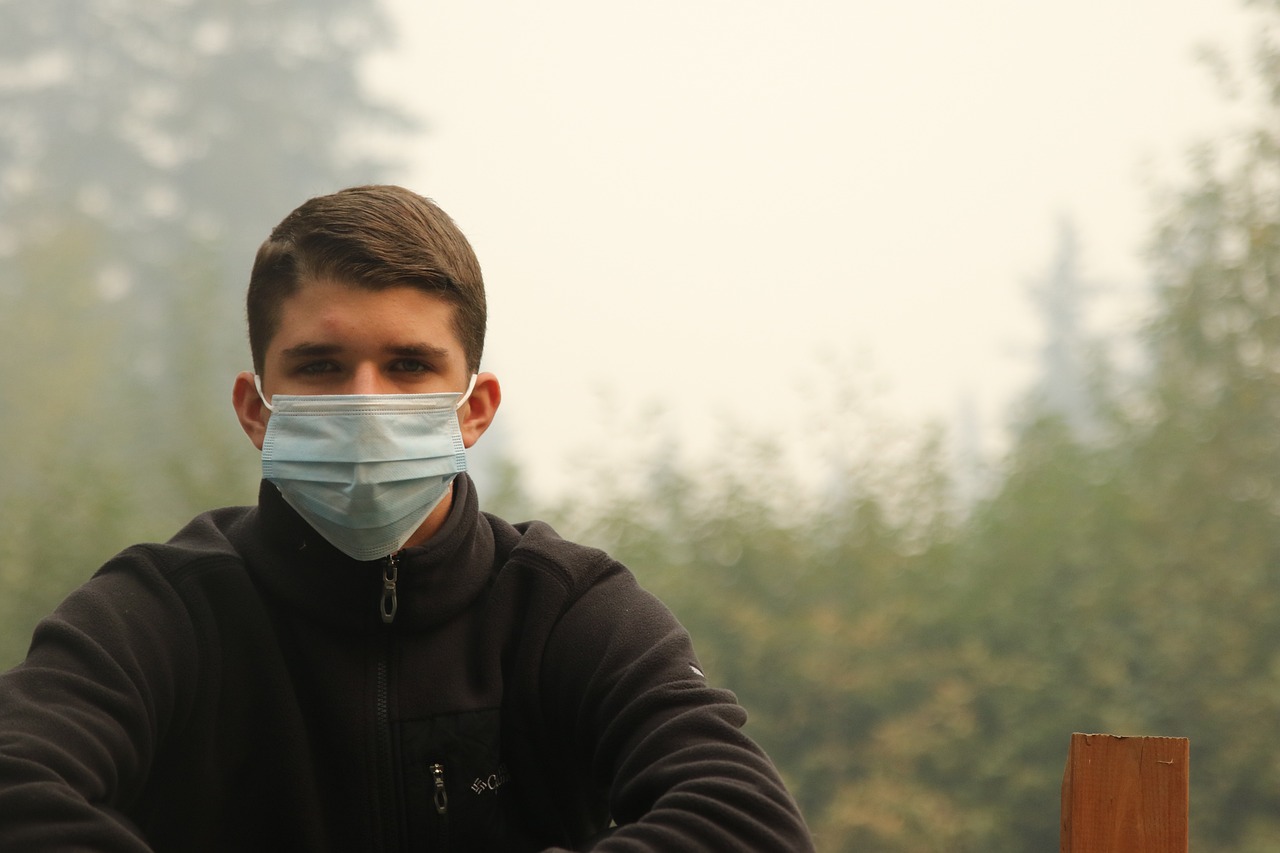
Journaling as a Therapeutic Tool
Journaling is not just a simple act of putting pen to paper; it's a powerful therapeutic tool that can help individuals navigate the emotional turbulence that often follows a natural disaster. When life feels chaotic and overwhelming, writing can serve as a safe haven, allowing you to express your thoughts and feelings without judgment. Imagine your journal as a trusted friend, ready to listen whenever you need to unload your worries or fears. By transforming your thoughts into words, you create a tangible outlet for your emotions, which can be incredibly liberating.
One of the most significant benefits of journaling is its ability to foster self-reflection. When you write about your experiences, you gain insight into your feelings and reactions. This process can help you identify patterns in your emotional responses, enabling you to understand what triggers your anxiety or sadness. For example, you might notice that certain memories related to the disaster resurface when you're feeling particularly stressed. Recognizing these triggers is the first step in managing them effectively.
Additionally, journaling can serve as a way to document your healing journey. By recording your thoughts and feelings over time, you can look back and see how far you've come. This can be especially encouraging during tough moments when you might feel stuck in your recovery. Consider keeping a section in your journal dedicated to gratitude. Each day, jot down a few things you're thankful for, no matter how small. This practice can shift your focus from what you’ve lost to what you still have, promoting a more positive mindset.
For those who may not know where to start, here are some journaling prompts that can help:
- What emotions am I feeling today, and why?
- What are some positive experiences I had today, despite the circumstances?
- How has my perspective changed since the disaster?
- What are my hopes for the future?
Each prompt encourages you to delve deeper into your emotional landscape, making the journaling experience more meaningful. You might find that as you write, your thoughts flow more freely, and you begin to uncover feelings you didn't even realize were there. Remember, there are no rules in journaling; it's your space to express whatever is on your mind.
In conclusion, journaling is a simple yet effective way to cope with the aftermath of natural disasters. It allows for emotional expression, self-reflection, and personal growth. So, grab a notebook and start writing. You might be surprised at what you discover about yourself and your journey toward healing.
Q: How often should I journal?
A: There’s no set rule! Some people find daily journaling helpful, while others prefer to write when they feel the need. The key is to make it a personal practice that fits your lifestyle.
Q: What if I don’t know what to write about?
A: Start with your feelings. Write about your day, your thoughts, or use prompts to guide you. The important thing is to get your thoughts out on paper.
Q: Can journaling really help with mental health?
A: Absolutely! Many studies have shown that journaling can reduce stress, improve mood, and help individuals process traumatic experiences.
Q: Should I keep my journal private?
A: Yes, keeping your journal private can create a safe space for honest expression. However, if you feel comfortable, sharing parts of your journal with a therapist can be beneficial.

Seeking Professional Help
Sometimes, coping alone is not enough, and seeking professional help becomes necessary. After experiencing the chaos of a natural disaster, it’s completely normal to feel overwhelmed. Imagine trying to navigate through a storm without a map—this is what many individuals experience in the aftermath of a disaster. The emotional toll can be heavy, leading to feelings of isolation, anxiety, and even depression. This is where professional support can make a significant difference.
Therapists and counselors are trained to help individuals process their experiences and emotions. They provide a safe space to talk about feelings that may seem too intense or confusing to share with friends or family. Engaging in therapy can be like having a personal guide who helps you find your way through the fog. Whether it’s through cognitive-behavioral therapy (CBT), mindfulness-based approaches, or other therapeutic methods, professionals can equip you with tools to manage anxiety and stress.
Moreover, it’s essential to recognize that seeking help is not a sign of weakness; rather, it is a courageous step towards healing. Many people find that sharing their experiences with someone who understands can lead to profound relief. If you’re unsure about where to start, consider the following options:
- Local Mental Health Services: Many communities offer resources specifically for disaster recovery.
- Hotlines: National and local hotlines can provide immediate support and guidance.
- Support Groups: Connecting with others who have faced similar challenges can foster a sense of belonging and understanding.
In addition, it’s vital to look for therapists who specialize in trauma and disaster recovery. They can offer tailored approaches that address the unique challenges faced after such events. Research has shown that early intervention can significantly improve long-term mental health outcomes. So, don’t hesitate to reach out for help; it’s a proactive step towards reclaiming your life and well-being.
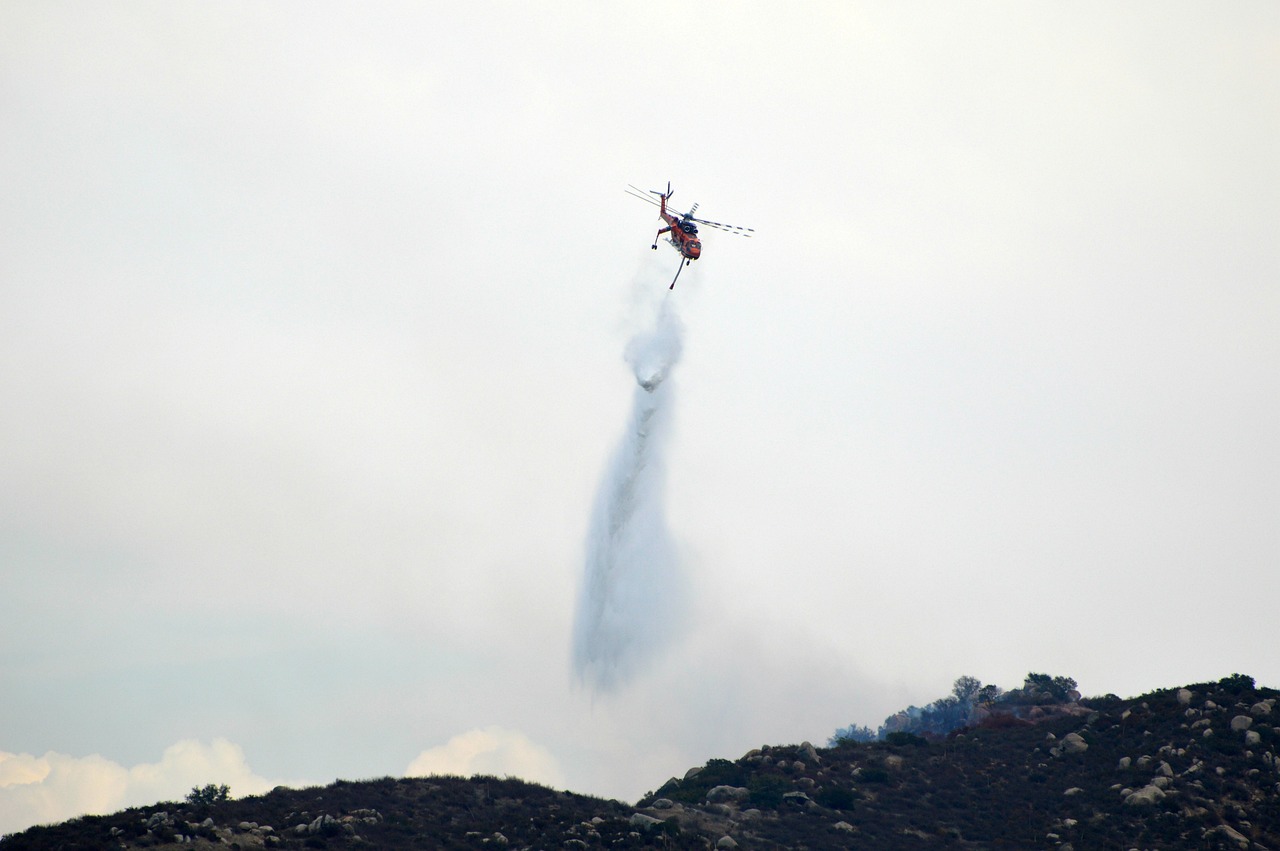
Support Systems and Community Resources
When the storm has passed and the dust begins to settle, one of the most important aspects of recovery is the strength of support systems and the availability of community resources. It's like having a sturdy umbrella on a rainy day; it provides shelter and comfort when everything feels chaotic. Connecting with others who have shared similar experiences can be incredibly healing. Whether it's friends, family, or local organizations, having a network of support can help individuals navigate the emotional aftermath of a natural disaster.
Support systems can take many forms. For some, it might be a close-knit group of friends who are always there to listen. For others, it might be a local community group that organizes recovery efforts. The key is to find a network that feels right for you. It’s essential to reach out and communicate your needs, as many people are willing to help but may not know how. This can include simply talking about your feelings or sharing your experiences, which can be a profound step toward healing.
Moreover, community resources play a critical role in recovery. Many local organizations offer services specifically designed to assist those affected by disasters. These services can include counseling, support groups, and even financial assistance. Here’s a quick look at some common community resources:
| Resource Type | Description | Contact Information |
|---|---|---|
| Counseling Services | Professional therapy sessions to help process trauma and grief. | (555) 123-4567 |
| Support Groups | Peer-led groups where individuals share experiences and coping strategies. | (555) 987-6543 |
| Financial Assistance | Help with immediate financial needs caused by the disaster. | (555) 555-5555 |
Utilizing these resources can significantly ease the burden of recovery. Imagine trying to climb a mountain without a rope; it can feel impossible. However, with the right support and resources, that mountain becomes a series of manageable hills. It’s about taking one step at a time, with the assurance that help is available when needed.
In addition to formal resources, don’t underestimate the power of informal connections. Sometimes, just talking with a neighbor or a coworker who has gone through a similar experience can provide comfort and understanding. Building a support network doesn’t have to be a daunting task; it can start with simple conversations and shared experiences.
In conclusion, the journey of recovery from a natural disaster is often challenging, but it doesn’t have to be faced alone. By reaching out to support systems and utilizing community resources, individuals can find the strength to heal. Remember, it’s okay to ask for help, and there are many people and organizations ready to lend a hand.
- What types of support systems are available after a disaster? Support can come from friends, family, local organizations, and online communities.
- How can I find community resources for mental health support? Check local government websites, community centers, or disaster relief organizations for information on available resources.
- Is it normal to feel overwhelmed after a disaster? Yes, it is completely normal to feel a range of emotions after experiencing a natural disaster, and seeking help is a positive step toward recovery.

Building a Support Network
When it comes to navigating the emotional aftermath of a natural disaster, building a robust support network is absolutely crucial. Think of it like constructing a safety net; when the ground beneath you feels shaky, having a network of people who care can provide the stability you need. So, how do you go about creating this network? Well, it starts with reaching out. Don’t be shy! Connect with friends and family who can lend an ear or a shoulder to cry on. Sometimes, just knowing that someone is there for you can make a world of difference.
But a support network isn’t just about your immediate circle. It’s also about tapping into the resources available in your community. Many local organizations offer support groups specifically designed for individuals recovering from disasters. These groups can be a lifeline, providing not only emotional support but also practical advice and shared experiences. Imagine sitting in a room full of people who truly understand what you’re going through. It’s comforting, isn’t it?
Additionally, consider the role of online communities. In today’s digital age, social media and online forums can connect you with others facing similar challenges. Whether you join a Facebook group or participate in a forum, these platforms can help you share your experiences and learn from others. Just remember to engage with these communities mindfully, as not all online interactions are positive.
Here are some key elements to consider when building your support network:
- Identify Key People: Think about who in your life is supportive and understanding. This could be friends, family members, or colleagues.
- Join Local Groups: Look for community centers or organizations that offer support groups for disaster recovery.
- Utilize Online Resources: Explore social media platforms and online forums to connect with others who share similar experiences.
In the end, remember that building a support network is an ongoing process. It requires effort and openness, but the benefits are immeasurable. Having a group of people who understand your struggles can not only help you cope but also empower you to heal and move forward. So take that first step—reach out, connect, and start building your safety net today!
Q1: Why is a support network important after a natural disaster?
A: A support network provides emotional and practical assistance, helping individuals cope with the psychological impacts of disasters.
Q2: How can I find local support groups?
A: Check community centers, local mental health organizations, or online resources to find support groups in your area.
Q3: What if I don’t have friends or family to rely on?
A: Consider joining community organizations or online support groups where you can connect with others who understand your situation.
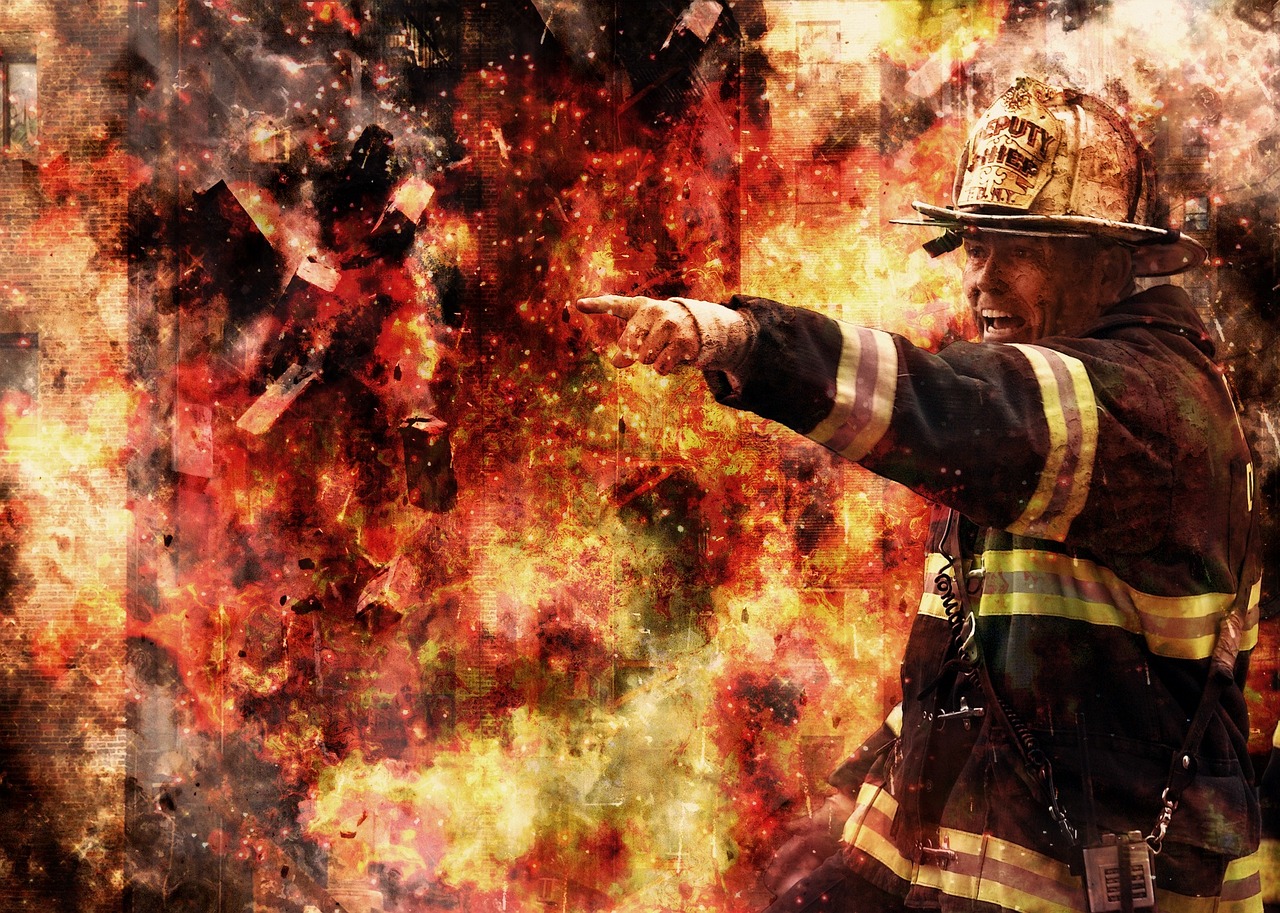
Utilizing Community Services
After experiencing a natural disaster, it’s essential to recognize that you're not alone in your journey to recovery. Community services play a crucial role in providing the necessary support and resources that can help individuals and families navigate the emotional and practical challenges that arise in the aftermath. These services often include counseling, support groups, and various forms of assistance designed to address the specific needs of those affected.
One of the most valuable aspects of community services is the availability of counseling programs. These programs are typically staffed by trained professionals who understand the unique psychological impacts of disasters. They can offer a safe space for individuals to express their feelings, process their trauma, and develop coping strategies. Many communities also provide group therapy sessions, which can be particularly beneficial as they allow individuals to share their experiences with others who have faced similar challenges. This sense of shared understanding can foster a feeling of belonging and reduce feelings of isolation.
In addition to counseling, many community organizations offer support groups specifically tailored for disaster survivors. These groups serve as a platform for individuals to connect, share their stories, and provide mutual support. Engaging in these groups can be incredibly cathartic. Imagine sitting in a circle with others who truly understand your pain and struggles; it can be like finding a lighthouse in a stormy sea. These connections not only help in healing but also promote resilience as individuals learn from each other's experiences.
Moreover, community services often extend beyond emotional support. They can provide practical assistance, such as financial aid, housing resources, and food assistance. Many local organizations collaborate with government agencies and non-profits to ensure that those affected by disasters receive the help they need to rebuild their lives. For instance, a local food bank might offer meals to families who have lost their homes, while housing assistance programs can help individuals find temporary accommodation. Understanding the array of services available can empower you to seek the help you need during these challenging times.
To make the most of these community resources, it’s crucial to stay informed. Many communities have online platforms or social media pages where they announce available services, upcoming support group meetings, and other relevant information. Additionally, local libraries and community centers often serve as hubs for information on available resources. Don't hesitate to reach out and ask questions; the more you know, the better equipped you’ll be to access the help that’s out there.
In summary, utilizing community services is a vital step in the healing process after a natural disaster. Whether it’s through counseling, support groups, or practical assistance, these resources can significantly ease the burden of recovery. Remember, reaching out for help is not a sign of weakness; rather, it’s a courageous step towards rebuilding your life and mental well-being.
- What types of community services are available after a disaster? Community services may include counseling, support groups, financial aid, and food assistance programs.
- How can I find local support groups? Check local community centers, libraries, or online platforms for information on support group meetings.
- Is it necessary to seek professional help after a disaster? While some individuals may cope well on their own, professional help can provide valuable support for those struggling with emotional distress.
- Can community services help with practical needs, such as housing? Yes, many community organizations offer resources for housing assistance and other practical needs.
Frequently Asked Questions
- What are the common psychological effects of natural disasters?
Natural disasters can lead to a variety of psychological effects, including anxiety, depression, and post-traumatic stress disorder (PTSD). These reactions are completely normal responses to such traumatic events, and recognizing them is the first step towards getting the help you may need.
- How can I cope with the emotional aftermath of a disaster?
Coping strategies can vary from person to person, but some effective methods include practicing mindfulness and meditation, engaging in breathing exercises, and journaling to express your feelings. These techniques can help you process your emotions and find a sense of calm amid the chaos.
- When should I seek professional help after a disaster?
If you find that your feelings of anxiety or depression are overwhelming or persist for an extended period, it might be time to seek professional help. Therapy and counseling can provide you with the tools to cope effectively and support your mental health recovery.
- What role do support systems play in recovery?
Having a strong support system is crucial for emotional recovery. Friends, family, and community resources can offer the necessary encouragement and understanding, helping you navigate the emotional landscape following a disaster.
- Are there community resources available for disaster recovery?
Yes, many communities offer resources such as counseling services, support groups, and disaster recovery programs. These services are designed to assist individuals in coping with the aftermath of a disaster and can be invaluable in your healing journey.



